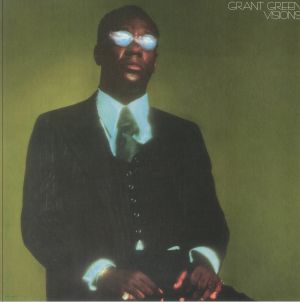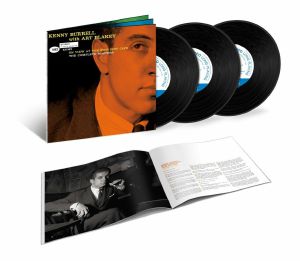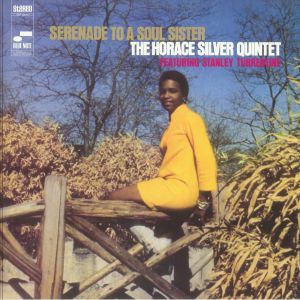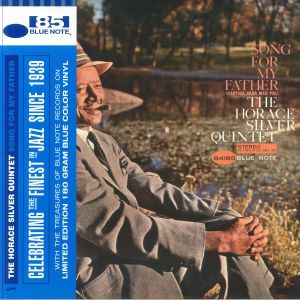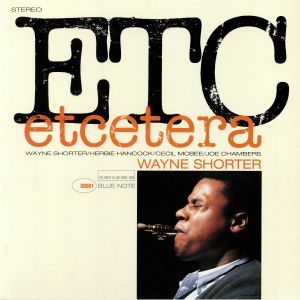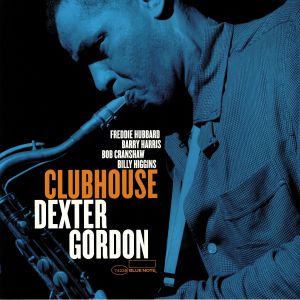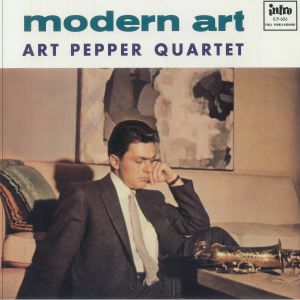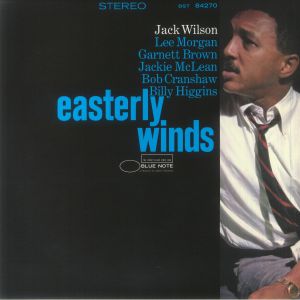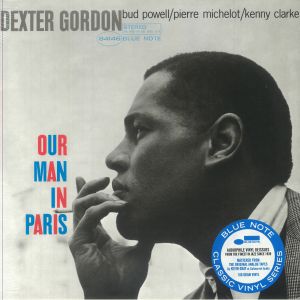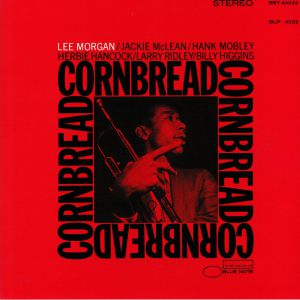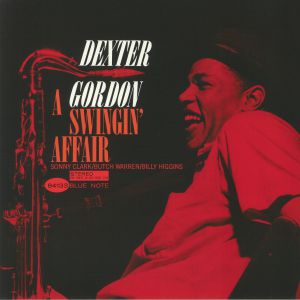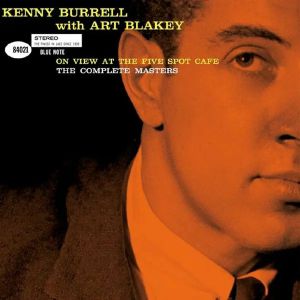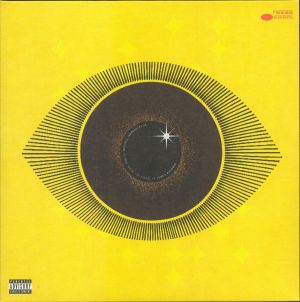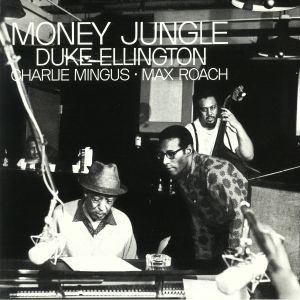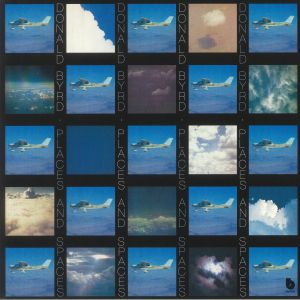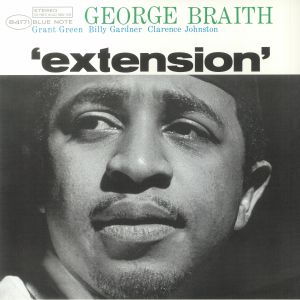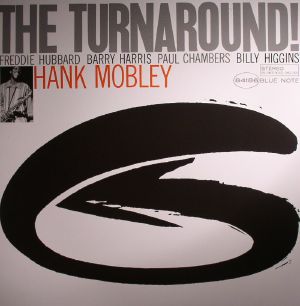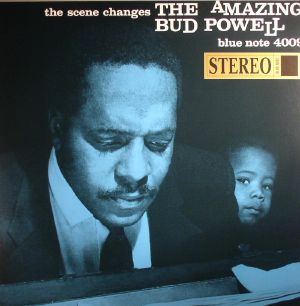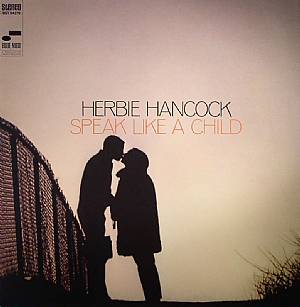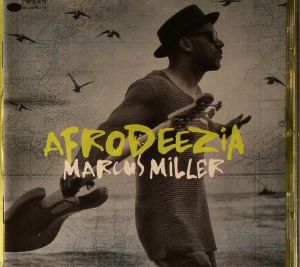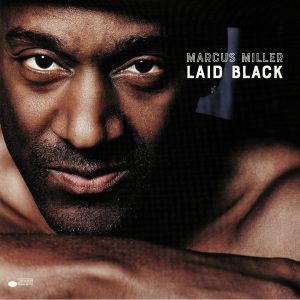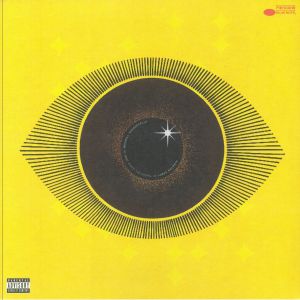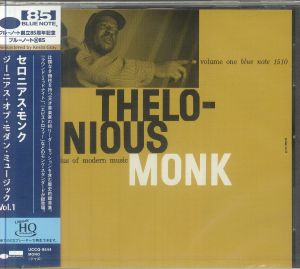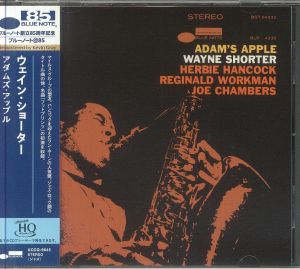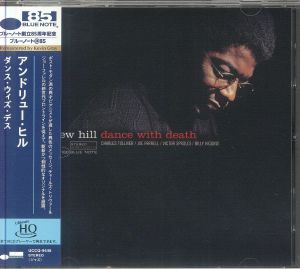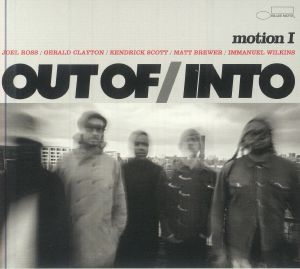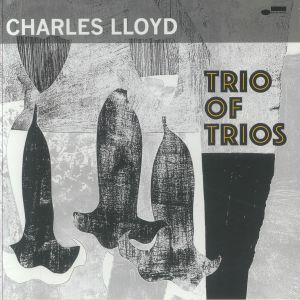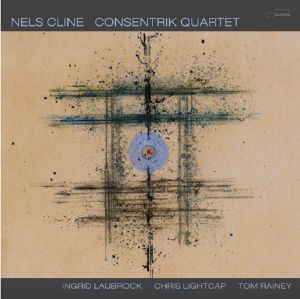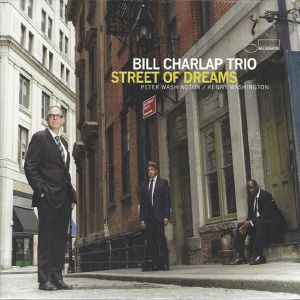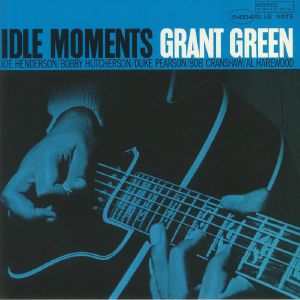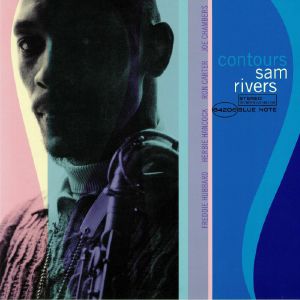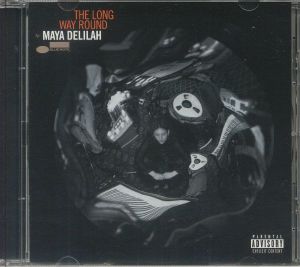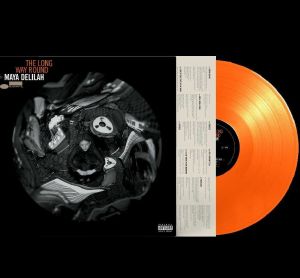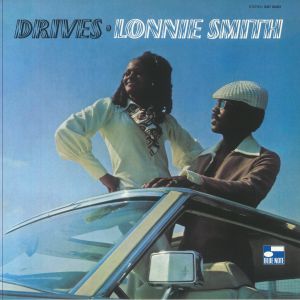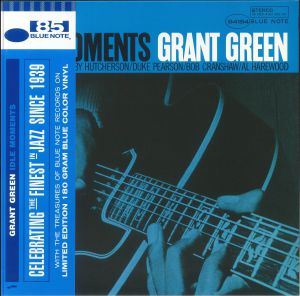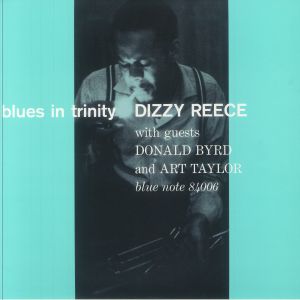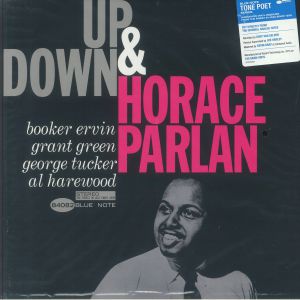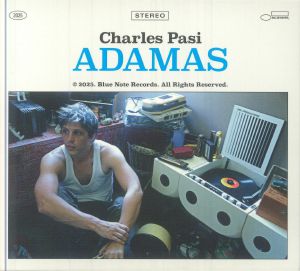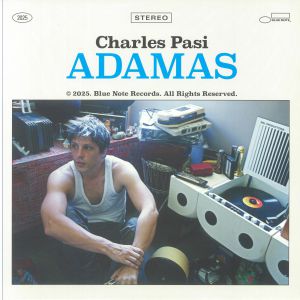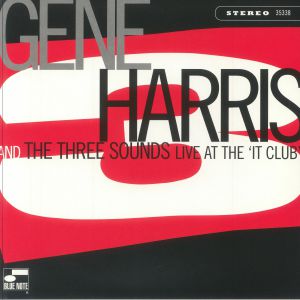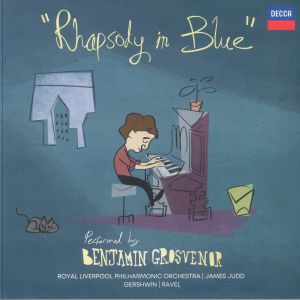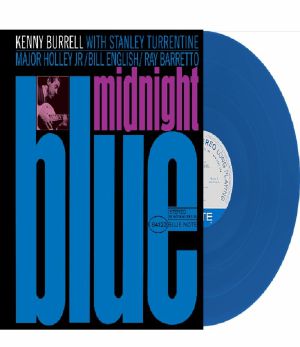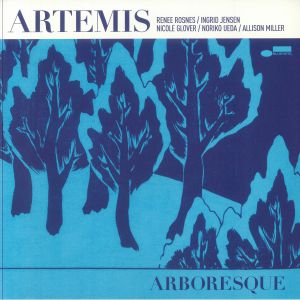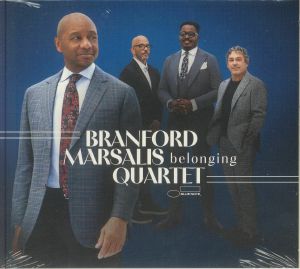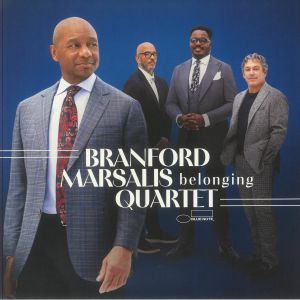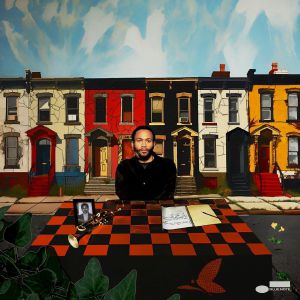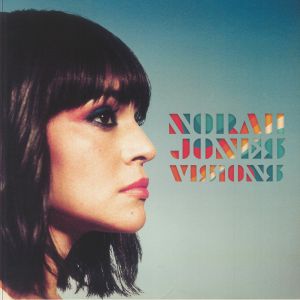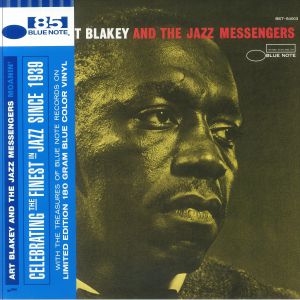Filter
Music
Artist
Label
Release Title
Price
Tags
Jazz charts
Bestselling Jazz vinylVisions (Classic Vinyl Series) (180 gram audiophile vinyl LP)
Cat: 651486 1. Rel: 12 Dec 24
Review: Grant Green's Visions, released in 1971, dives into r&b and jazz-funk with an all-star lineup including Billy Wooten, Chuck Rainey, and Idris Muhammad. Green's signature tone and melodic style transform tracks from The Jackson 5, Chicago, The Carpenters, Mozart, and Quincy Jones' 'Maybe Tomorrow,' later sampled by Kendrick Lamar. This Blue Note Classic Vinyl Edition captures the original stereo mix, mastered by Kevin Gray from analog tapes, pressed on 180g vinyl at Optimalia soulful essential for collectors and fans of jazz-funk's golden era.
… Read more in stock $31.04
Kenny BURRELL with ART BLAKEY
On View At The Five Spot Cafe: The Complete Masters (Tone Poet Series) (gatefold 3xLP + booklet)
Cat: 750228 1. Rel: 24 Apr 25
Gespielt von: Juno Recommends Jazz
in stock $80.92
Serenade To A Soul Sister (Classic Vinyl) (gatefold 180 gram vinyl LP)
Cat: 651496 9. Rel: 20 Mar 25
Review: An album that stands as one of American jazz pianist Silver's last great albums for Blue Note. Recorded in early 1968 with two mostly different quintets, the album features trumpeter Charles Tolliver, alternating tenor saxophonists Stanley Turrentine and Bennie Maupin, bassists Bob Cranshaw and John Williams and drummers Mickey Roker and Billy Cobham. Silver's rhythmic, economical piano style is often described as funky and nowhere is this more evident than on the album's standout opener, 'Psychedelic Sally'. With its jubilant horn theme and funky Memphis soul-inspired bass riff, the track is a rollicking seven-minute classic that blends 60s funk with 50s bop. The rest of the album maintains a playful spirit. 'Rain Dance' presents a campy, American Indian-style theme, while 'Jungle Juice' offers an exotic, tribal flavour. The warm, loose-swinging title track, 'Serenade to a Soul Sister' and the ethereal 'Kindred Spirits' add depth to the set. The album closes with the gentle piano trio ballad 'Next Time I Fall in Love'. While the first half of the album leans into a bluesy, funky vibe with Turrentine's soulful saxophone, the latter half shifts to a more boppish feel with Maupin, is a different but equally engaging dynamic. Through it all, Silver's philosophy of keeping politics and anger out of his music shines, delivering a joyous and tightly performed soul-jazz classic.
… Read more in stock $29.92
Song For My Father (reissue) (limited 180 gram blue vinyl LP with obi-strip (indie exclusive))
Cat: 651173 2. Rel: 12 Sep 24
Review: A decade into his career, Horace Silver recorded what many consider one of his finest albums at the renowned Van Gelder Studio. Joined by Blue Mitchell, Junior Cook, Gene Taylor, and Roy Brooks, the session marked a key transition for his quintet. This album was released a year before his iconic hit 'Song for My Father,' which was indeed a tribute to his Cape Verdean father. This reissue for the Blue Note Classic series has been remastered by Kevin Gray from the original master tapes so it offers an all-analogue experience and delivers superb sound quality that honours Silver's legacy.
… Read more in stock $31.87
Etcetera (Tone Poet Series) (gatefold 180 gram audiophile vinyl LP)
Cat: 771877 7. Rel: 03 Jun 21
Gespielt von: Juno Recommends Jazz
in stock $44.90
My Point Of View (Tone Poet Series) (reissue) (gatefold 180 gram audiophile vinyl LP)
Cat: 881133. Rel: 30 Oct 20
Gespielt von: Juno Recommends Jazz
in stock $44.90
Clubhouse (Tone Poet Series) (reissue) (gatefold 180 gram audiophile vinyl LP)
Cat: 771877 6. Rel: 28 Jun 19
Gespielt von: Juno Recommends Jazz
in stock $29.75
Modern Art (Tone Poet Series) (180 gram vinyl LP + insert)
Cat: 484985 1. Rel: 03 Apr 25
Review: A refined and understated session, this reissue is a masterful example of West Coast jazz, offering a smooth, mellow and introspective listening experience. Recorded between december 1956 and January 1957 in Hollywood, California, this album showed Pepper's signature melodic alto saxophone over a relaxed and fluid quartet setting. The lineup features Russ Freeman on piano, Ben Tucker on bass and Chuck Flores on drums, each contributing to the album's effortlessly cool and unfailingly swinging atmosphere. Unlike the high-energy performances found on Art Pepper Meets the Rhythm Section, Modern Art unfolds at a more leisurely pace, making it a perfect soundtrack for a laid-back evening. The album's bookends, 'Blues In' and 'Blues Out', frame a collection of beautifully arranged pieces, including exquisite renditions of 'Bewitched', 'Stompin' at the Savoy' and 'What Is This Thing Called Love'. One of the true highlights is 'Summertime', a performance filled with emotional depth and intensity, as though Pepper poured his very soul into each note. This Blue Note Tone Poet reissue, produced by Joe Harley and mastered by Kevin Gray from the original analogue tapes, is an essential edition. Pressed with impeccable sound quality, this release does full justice to Pepper's warm, lyrical tone. Whether you're just beginning your jazz journey or a seasoned listener, Modern Art is the type of album that continues to reveal its brilliance with every spin. If you're new to jazz, this album might just make you a fan of the West Coast sound.
… Read moreGespielt von: Juno Recommends Jazz
in stock $38.79
Easterly Winds (Tone Poet Series) (gatefold 180 gram audiophile vinyl LP)
Cat: 450925 8. Rel: 02 Nov 23
Review: Easterly Winds by Jack Wilson is a jazz classic that showcases the pianist's virtuosity and emotive depth. Released now as part of the Tone Poet Series, the album encapsulates Wilson's ability to blend intricate harmonies with soulful improvisation. The gentle yet evocative melodies, carried by Wilson's nimble fingers, capture the essence of cool jazz elegance. The interplay between piano, bass, and drums creates a contemplative atmosphere across the record that is reminiscent of a breezy journey guided by the titular easterly winds. As such, the record stands as a timeless example of his artistry and one that left a fine mark on the landscape of jazz.
… Read more! low stock $33.24
Our Man In Paris (Classic Vinyl Series) (180 gram audiophile vinyl LP)
Cat: 651496 7. Rel: 20 Feb 25
Review: Super cool jazz cat Dexter Gordon's 1963 album Our Man in Paris marked his first release from Europe and is often regarded as the final bebop album. The saxophonist gathered a quartet featuring bebop legends Bud Powell on piano and Kenny Clarke on drums and they played alongside French bassist Pierre Michelot to record this timeless work at CBS Studios in Paris. The album is defined by Gordon's commanding saxophone with the intricate rhythms of bebop that take you right back to a precise moment of musical history which marked a significant transition in jazz. It remained a defining work in Gordon's career.
… Read moreGespielt von: Juno Recommends Jazz
in stock $31.04
Cornbread (Tone Poet Series) (gatefold 180 gram audiophile vinyl LP)
Cat: 775005 1. Rel: 21 Jun 19
Gespielt von: Juno Recommends Jazz
in stock $39.63
Review: Two days after he laid down his most celebrated album, "Go!", saxophonist Dexter Gordon gathered together the same line-up of musicians - Sonny Clark on piano, Butch Warren on bass and Billy Higgins on drums - and recorded a follow-up. Initially released in 1962, "A Swingin' Affair" has long been considered a hard-bop classic - hence this fresh reissue from Blue Note. It certainly contains some of Gordon's best work, not least the sparkling opener "Soy Califa", the languid and smoky niceness of "You Stepped Out Of A Dream" and the bluesy, bittersweet brilliance of slow-motion classic "Until The Real Thing Comes Along".
… Read moreGespielt von: Juno Recommends Jazz
in stock $22.16
Kenny BURRELL with ART BLAKEY
Cat: 759581 1. Rel: 24 Apr 25
Review: By the time Kenny Burrell took the stage at the Five Spot Cafe in August 1959, he had already 90-degree head-turned his best jazz fellow travellers with a glissando of Blue Note LPs. But this gig, his first live date as a leader, brought a new kind of magic. Contracting Art Blakey, Tina Brooks, Roland Hanna, Bobby Timmons, and Ben Tucker on band duties, Burrell confidently executed a suite of hard bop soaked in sweat, swing, and soul. This 3xLP brings that steamy summer evening back to life in full analogue detail; housed in a tip-on trifold jacket with an accompanying booklet of rare Francis Wolff photos, an essay by Syd Schwartz, and new reflections from Burrell himself, it's a vivid snapshot of a moment when everything clicked.
… Read moreGespielt von: Juno Recommends Jazz
in stock $15.25
No More Water: The Gospel Of James Baldwin (gatefold heavyweight vinyl 2xLP)
Cat: 652150 5. Rel: 01 Aug 24
Review: Meshell Ndegeocello's upcoming album, No More Water: The Gospel of James Baldwin, is a profound tribute to the iconic author on the 100th anniversary of his birth. Following her Grammy-winning debut on Blue Note Records, Ndegeocello co-produced this album with guitarist Chris Bruce, enlisting a talented ensemble including vocalist Justin Hicks, saxophonist Josh Johnson and others. The album's first singles, 'Travel' and 'Raise the Roof,"' offer a glimpse into its powerful blend of music and spoken word. With contributions from poet Staceyann Chin and others, Ndegeocello's work transcends mere tribute, offering a transformative experience that is part music, part sermon, part celebration, and part call to action. No More Wate promises to be a genre-defying, spiritually enriching journey that honors Baldwin's legacy while adding a unique musical perspective. This album is poised to be a standout in Ndegeocello's already illustrious career.
… Read moreGespielt von: Juno Recommends Jazz
in stock $39.35
Money Jungle (Tone Poet Series) (reissue) (gatefold 180 gram audiophile vinyl)
Cat: 847069. Rel: 24 Apr 20
Gespielt von: Juno Recommends Jazz
in stock $44.90
Places & Spaces (reissue) (180 gram audiophile vinyl LP)
Cat: 359680 0. Rel: 19 Nov 21
Review: Blue Note are on a reissuing roll, not shying from revisiting the work of their most treasured jazz acts this year. The latest in their Classic Editions comes by way of Donald Byrd, whose timeless 1975 album Places And Spaces documents the trumpeter's fearless jazz-funk fusion era. This being Blue Note, you can expect only the best rendition of this orchestral jazz-funk suite that a vinyl pressing has to offer. This version is an all-analog remaster, by legendary cutting engineer Kevin Gray, from the original tapes. Expect a thorough justice-doing of the hits, 'Dominoes' and 'Wind Parade', which boast production credits from the infamous Larry Mizell.
… Read more in stock $30.49
Review: Extension was the last of three unique Blue Note sessions led by the singular saxophonist George Braith in the early 1960s. The album was rooted in soul jazz - with Grant Green (guitar), Billy Gardner (organ), and Clarence Johnston (drums) - but Braith's adventurous spirit led the music into unexpected realms on memorable originals like "Nut City." Blue Note Classic Vinyl Series is all-analogue, mastered by Kevin Gray from the original master tapes, and pressed on 180-gram vinyl at Optimal.
… Read moreGespielt von: Juno Recommends Jazz
in stock $12.48
Gespielt von: Juno Recommends Jazz
in stock $33.24
in stock $33.82
in stock $32.14
in stock $11.08
in stock $36.30
No More Water: The Gospel Of James Baldwin (limited gatefold tangerine vinyl 2xLP (indie exclusive))
Cat: 602465 793772. Rel: 15 Aug 24
Review: Meshell Ndegeocello's album, No More Water: The Gospel of James Baldwin, is a powerful tribute to the renowned writer and activist, released on his centennial. This visionary work is a blend of musical genres, serving as both a musical experience and a platform for social change. Co-produced by Meshell and guitarist Chris Bruce, the album features collaborations with talented artists like Justin Hicks, Kenita Miller, and Abe Rounds. Additionally, spoken word performances by Staceyann Chin and Hilton Als add depth and meaning to the album. No More Water is a compelling and transformative listening experience that honors Baldwin's legacy and inspires reflection and action. A project that was nearly ten years in the making, all the ingredients are here to make this landmark release that is sure to go down in music history.
… Read moreGespielt von: Juno Recommends Jazz
in stock $47.94
in stock $17.73
Adam's Apple (remastered) (UHQ-CD with obi-strip)
Cat: 589038 0. Rel: 28 Feb 25
in stock $17.73
in stock $19.68
in stock $14.41
in stock $83.42
Review: Chicago rock band Wilco's guitarist - a highly prolific jazz maestro in his own right - brings us his latest full length album. A hypnotic groove anchors the lead single, propelling a hard-driving yet fluid interplay between guitar and saxophone. The composition brims with urgency, each phrase unfolding with elegant harmonic tension and a deep jazz sensibility. The quartet's chemistry is undeniable, balancing structured intensity with moments of free-flowing improvisation. Echoes of classic Blue Note recordings by Andrew Hill and Eric Dolphy surface in the phrasing, while the interplay recalls the front-line dynamism of Joe Lovano and John Scofield's collaborations. Yet, the sound remains singular, shaped by a deep appreciation for Brooklyn's improvised music scene. Across the album, the group explores a vast emotional and textural rangeiat times bracing and kinetic, elsewhere delicate and atmospheric. The rhythm section locks into compelling grooves, allowing melodies to breathe and evolve organically. The guitarist's mastery is evident, seamlessly shifting from shimmering chord voicings to fiery, exploratory runs. This is a love letter to both jazz tradition and the limitless potential of improvisation, where every note serves the collective momentum.
… Read more in stock $40.47
in stock $31.04
in stock $29.11
Idle Moments (reissue) (B-STOCK) (180 gram audiophile vinyl LP)
Cat: 357991 0 (B-STOCK). Rel: 01 Jan 90
B-STOCK: Sleeve damaged but otherwise in excellent condition
in stock $20.95
Contours (Tone Poet Series) (reissue) (B-STOCK) (gatefold 180 gram audiophile vinyl LP)
Cat: 772489 9 (B-STOCK). Rel: 01 Jan 90
B-STOCK: Sleeve damaged but otherwise in excellent condition
in stock $41.01
in stock $14.14
Review: A multifaceted personality, 24-year-old breakout folk star Maya Delilah shares The Long Way Round on Decca Records, fresh off the back of a Spotify "One To Watch" award. "I get so influenced by different genres, people, places, and experiences that it's always felt hard for me to fit my music into a consistent sound or mood," the singer said in a statement. Forerun by the likes 'Squeeze' and 'Necklace', Delilah's vocals are breathy and her backing instrumentals smooth, tinged with the torrid strokes of Ayers-esque sunshine funk. Recorded between LA and London, the record flags up themes from cyclical relationships to predestination, with Delilah feeling that the record expresses a future nostalgia for someone she's never met before.
… Read more in stock $28.55
Drives (Classic Vinyl Series) (180 gram audiophile vinyl LP)
Cat: 651486 0. Rel: 12 Dec 24
Review: Lonnie Smith's 1970 opus Drives manifests an exhilarating blend of adventure and unyielding grooves. Featuring a stellar lineup with Dave Hubbard on tenor sax and Ronnie Cuber on bari sax, Smith reinterprets classics like 'Twenty-Five Miles' and 'Spinning Wheel' while breathing new life into Miles Davis' 'Seven Steps to Heaven.' This Blue Note Classic Vinyl Edition offers a pristine listening experience, being all-analogue and mastered by Kevin Gray from the original tapes, pressed on high-quality 180g vinyl at Optimal. A vital addition for any jazz aficionado, it captures Smith's artistic spirit brilliantly.
… Read more in stock $28.55
Idle Moments (Blue Vinyl Series) (limited 180 gram blue vinyl LP with obi-strip)
Cat: 651174 5. Rel: 07 Nov 24
in stock $31.04
Blues In Trinity (Tone Poet Series) (180 gram vinyl LP + insert)
Cat: 551875 9. Rel: 06 Feb 25
Review: A transatlantic jazz summit, capturing Jamaican trumpeter Dizzy Reece alongside American legends Donald Byrd and Art Taylor. Recorded in London in 1958, Blues In Trinity marks Reece's Blue Note debut, a vibrant blend of hard bop and soulful melodies and features a stellar lineup including Tubby Hayes on tenor sax, Terry Shannon on piano and Lloyd Thompson on bass. Reece's trumpet shines throughout, his expressive playing and melodic phrasing complemented by Byrd's equally impressive contributions. Highlights include the soulful title track, the dreamy 'I Had The Craziest Dream' and a captivating rendition of Monk's 'Round About Midnight'.
… Read moreGespielt von: Juno Recommends Jazz
in stock $39.35
Up & Down (Tone Poet Series) (gatefold 180 gram vinyl LP)
Cat: 551877 1. Rel: 06 Feb 25
Review: This Tone Poet Vinyl Edition presents Horace Parlan's quintessential hard bop quintet session. Known for his work with Charles Mingus, Parlan shines alongside George Tucker, Al Harewood, Grant Green, and Booker Ervin. The music swings with an effortless groove, showcasing Parlan's bluesy piano stylings and the band's tight interplay. Mastered from the original analogue master tapes by Kevin Gray, this reissue captures the warmth and vibrancy of the original recording. A must-have for any fan of hard bop and classic Blue Note sounds.
… Read moreGespielt von: Juno Recommends Jazz
in stock $39.35
in stock $14.14
in stock $31.04
Live At The It Club (reissue) (180 gram audiophile vinyl LP)
Cat: 588079 0. Rel: 19 Sep 24
Review: The Three Sounds, one of Blue Note's most productive acts, evolved significantly by 1970. Under the leadership of pianist Gene Harris, the trio welcomed bassist Henry Franklin and drummer Carl Burnett into its ranks, infusing their blues and gospel foundations with a funkier, more vibrant rhythm. This shift is brilliantly captured in Live at the 'It Club', a rousing live recording that highlights their transformation. The record demonstrates how the trio, especially through Burnett's drumming and Franklin's basslines, pushed their sound into funkier territories while maintaining their soulful hard-bop roots. The rhythm section's infectious groove drives the music, giving it a loose, swinging feel where the groove is paramount. Tracks like 'Funky Pullett' and 'Love for Sale' showcase this new dynamic, where the interplay between the trio adds layers of grit and soul to their performances. Live at the 'It Club' remains a thoroughly enjoyable listen with the trio's unique blend of soul-jazz with a fresh, funky twist proudly presented.
… Read moreGespielt von: Juno Recommends Jazz
in stock $30.21
Benjamin GROSVENOR / VARIOUS
Rhapsody In Blue (100th Anniversary Edition) (limited translucent blue vinyl LP)
Cat: 485493 0. Rel: 25 Apr 24
Review: Benjamin Grosvenor's latest release, the second installment in his Decca contract, showcases his exceptional talent in works for piano and orchestra. Teaming up with the Royal Liverpool Philharmonic under James Judd's baton, Grosvenor delivers captivating interpretations of Saint-Saens' Second Piano Concerto, Ravel's G Major Concerto, and Gershwin's iconic Rhapsody in Blue. While the combined choice of repertoire might seem unconventional, Grosvenor's artistry shines through, effortlessly transitioning between the diverse styles of each composer. His refined yet impassioned playing captivates listeners, whether navigating the lyrical passages of Ravel's concerto or infusing Gershwin's jazz-infused melodies with infectious vitality. The accompanying solo 'encores' further showcase Grosvenor's virtuosity, with standout performances of Saint-Saens' 'The Swan,' Ravel's Prelude in A Minor', and Gershwin's 'Love Walked In.' Each piece is delivered with exquisite precision and sensitivity, demonstrating Grosvenor's mastery across a range of repertoire.
… Read more in stock $34.64
Midnight Blue (Blue Vinyl Series) (limited 180 gram blue vinyl LP with obi-strip (indie exclusive))
Cat: 651174 3. Rel: 10 Oct 24
Review: Kenny Burrell's Midnight Blue, recorded in 1963, stands as one of the finest examples of jazz guitar blended with deep blues. Backed by an impressive lineup including Stanley Turrentine on tenor sax, Major Holley Jr. on bass, Bill English on drums, and Ray Barretto on congas, the album creates a warm, late-night mood. Burrell's originals like 'Chitlins con Carne', 'Midnight Blue' and the beautiful solo guitar piece 'Soul Lament' bring a rich, soulful character to the session. Known for his smooth, understated approach, Burrell fills the record with subtle elegance. Turrentine's big, soulful sax and Barretto's rhythmic congas add layers of texture, making this a truly great listen. The relaxed, intimate atmosphere captured by Rudy Van Gelder's exceptional recording skills allows each instrument to shine, with Burrell's guitar work at the center, delivering warmth and swing with a vintage touch. This edition, all-analog and pressed on 180g vinyl, brings the full depth of the original sound to life.
… Read more in stock $40.75
Review: Fresh off their second consecutive win as "Jazz Group of the Year" in the DownBeat Readers Poll, Artemis returns with their third Blue Note album. Featuring a quintet lineup helmed by pianist and musical director Renee Rosnes, this all-female supergroup unites some of the most pre-eminent voices in modern jazz. Trumpeter Ingrid Jensen, saxophonist Nicole Glover, bassist Noriko Ueda and drummer Allison Miller bring their individual brilliance to a vibrant set of original compositions and inspired arrangements. 'The Smile Of The Snake' slithers with a captivating energy, while 'Komorebi' shimmers with delicate beauty. 'Footprints', a Wayne Shorter classic, receives a fresh and invigorating interpretation, while Burt Bacharach's 'What The World Needs Now Is Love' is transformed into a poignant ballad. From the intricate interplay of Jensen's trumpet and Glover's saxophone to the driving rhythms of Ueda and Miller, this album showcases a remarkable synergy between five exceptional musicians at the top of their game.
… Read more in stock $31.04
in stock $14.14
in stock $39.35
in stock $14.41
in stock $31.04
Moanin' (limited 180 gram blue vinyl LP with obi-strip (indie exclusive))
Cat: 585922 8. Rel: 08 Aug 24
Review: Art Blakey & The Jazz Messengers' Moanin' is a quintessential hard bop album that effortlessly stands out with its classic, distinctive sound. Released in 1958, this seminal record features a lineup of jazz luminaries, including pianist Bobby Timmons, saxophonist Benny Golson, trumpeter Lee Morgan, and bassist Jymie Merritt. Despite its adherence to traditional hard bop elements, the album shines with an exceptional blend of precision, enthusiasm, and depth. The title track, 'Moanin',' composed by Timmons, sets the tone with its infectious groove, while Golson's contributionsi'Along Came Betty,' 'Blues March,' and 'Are You Real?'iadd a range of emotions and rhythms, from lyrical to powerful. The standout 'The Drum Thunder Suite' shows Blakey's unparalleled drumming strength, combining dynamic rhythms and Latin influences. The album's meticulous craftsmanship ensures that every track maintains the listener's attention, offering a mix of accessible melodies and intricate musicianship. Blakey's leadership and the band's chemistry result in an album that is not only a highlight of hard bop but also a compelling entry point for jazz enthusiasts. Moanin' remains a timeless classic, celebrated for its masterful execution and enduring impact on the jazz genre.
… Read moreGespielt von: Juno Recommends Jazz
in stock $41.29

 USD
USD






